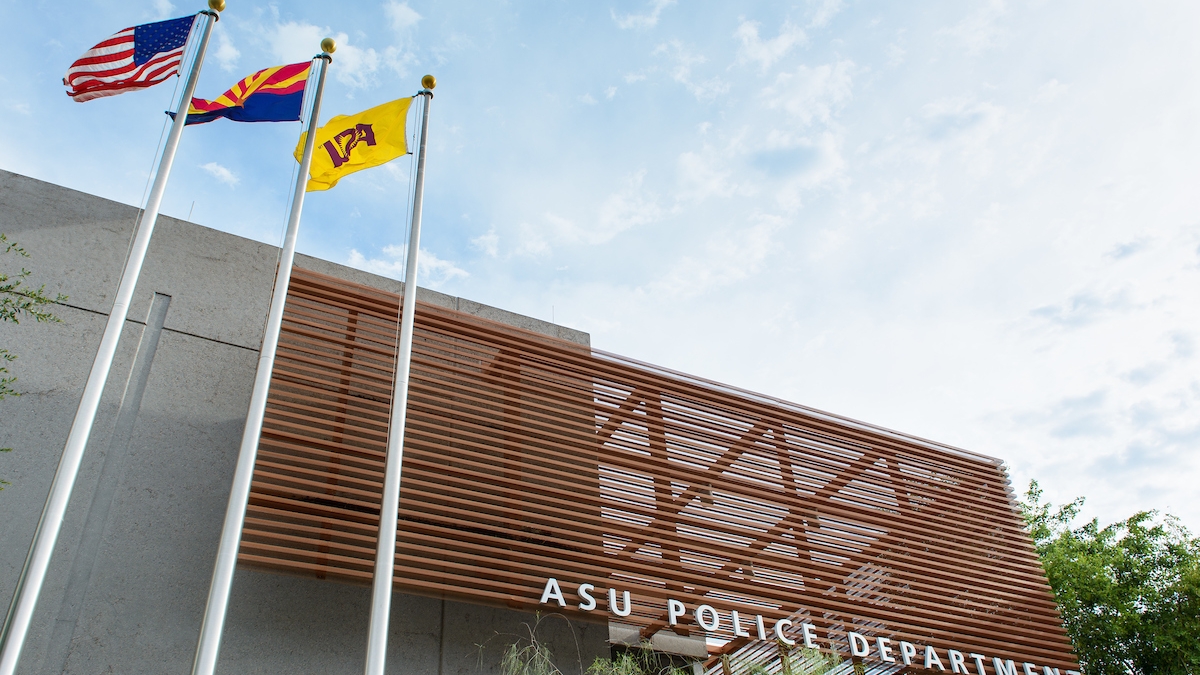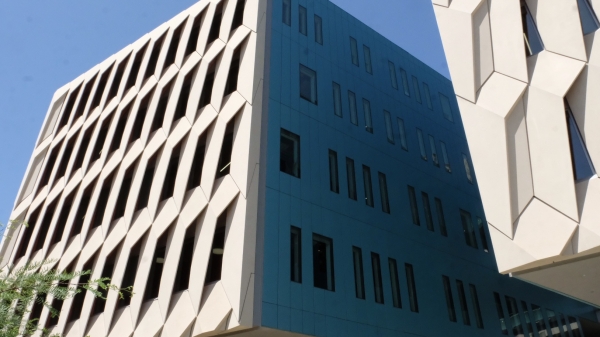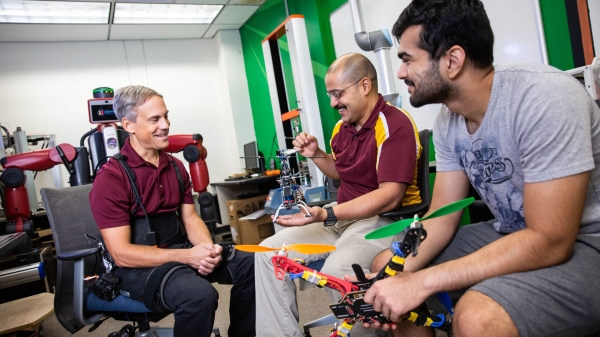ASU Police reach a 20-year milestone
Department continues streak of national accreditations

Getting the seal of approval from the nation’s pre-eminent accrediting body in the law enforcement field is not new to the Arizona State University Police Department, an achievement they have earned since 1997.
However, this year under the leadership of Chief of Police Michael Thompson the department earned the highest rating possible from the Commission on Accreditation for Law Enforcement Agencies, better known as CALEA.
“We passed our reaccreditation ‘with excellence’ which is the highest rating you can receive from CALEA,” Thompson said. “I am first and foremost grateful to all of the department members for the hard work they’ve put forth to make sure we have a great department and that we deliver services to the best of our ability.”
CALEA announced the results of this year’s evaluations during a reaccreditation hearing in Florida on Nov. 18. Other police agencies earning accreditation included the Chandler Police Department, Penn State, Vanderbilt University and the University of Vermont, among others.
The ASU Police Department is only one of 13 accredited agencies in Arizona, Thompson said. The accreditation process is complicated and takes tremendous commitment by a department. Not all law enforcement agencies devote the time to go through this voluntary process, which inspects all significant aspects of a police department — policy and procedures, administration, operations, and support services.
Video by Ken Fagan/ASU Now
Accreditation benefits the ASU community in that it helps create a more professional police department engaged with the best trends and practices to serve the community. Accreditation is good for four years as long as law enforcement agencies submit yearly reports confirming continued compliance with the standards under which they were initially accredited.
As part of the accreditation process, the ASU Police Department invited members of the university and local communities to provide feedback during a public information session in August. The session took place in Tempe but was also live-streamed to the Polytechnic, West and Downtown Phoenix campuses. There was also an option for community members to mail written comments about ASU police directly to CALEA.
To qualify for the CALEA Accreditation with Excellence Award, the ASU Police Department had to meet several requirements, including having a minimum of two previous consecutive CALEA accreditation awards and submitting all annual status reports. The police department also had to achieve a minimum of 95 percent compliance rate with all standards by the end of the assessment cycle.
In a letter sent Nov. 18, Richard W. Myers, CALEA chairman, and W. Craig Hartley Jr., CALEA executive director, congratulated the ASU Police Department: “On behalf of the Commissioners and staff of CALEA, we commend you and your agency for demonstrating a commitment to professional excellence in policy and practice. It is a privilege to award your agency CALEA Accreditation, which is accomplished through a highly regarded and broadly recognized body of professional standards. This award represents the culmination of self-evaluation, concluded by a review from independent assessors and CALEA’s Commissioners.”
More University news

College of Global Futures announces new directors
As the academic home to those tackling some of our planet’s most urgent challenges, the College of Global Futures at Arizona State University empowers learners to shape their own futures. This…

Reaching new heights in robotics
In the halls of the School of Manufacturing Systems and Networks, part of the Ira A. Fulton Schools of Engineering at Arizona State University, the spirit of innovation hums through the air like…

ASU brings advanced AI and VR training to over 2,000 faculty in Argentina
How does technology transform our ability to learn? In the evolving landscape of education, artificial intelligence and virtual reality are enabling profound changes. AI's capability for…